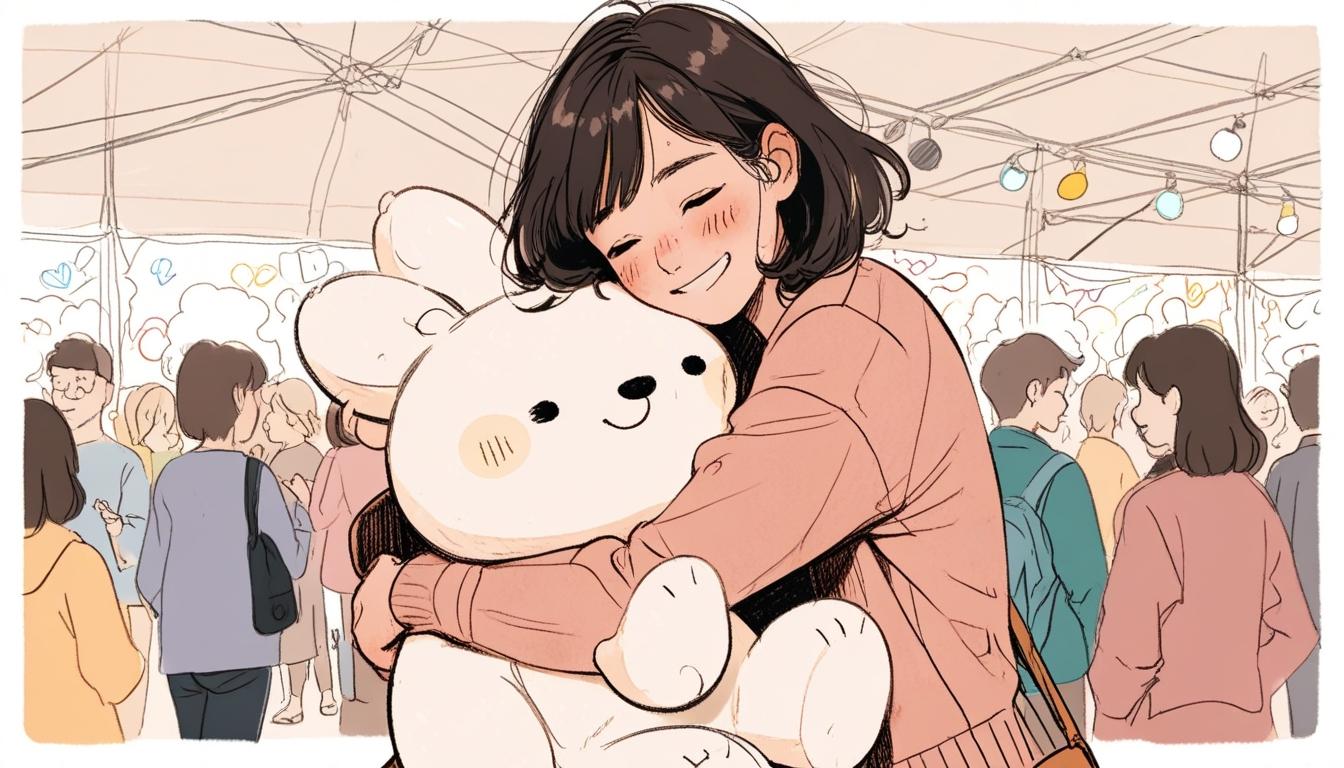In recent years, a notable trend known as "kidulting" has emerged, drawing attention to adults embracing childhood comforts and interests, particularly among women. This phenomenon encompasses the collection of toys, nostalgia-driven activities, and even living arrangements that harken back to simpler times.
One prominent figure in this trend is Frankie Day, a 31-year-old mother from Southampton, who recently visited Selfridges in London to purchase Jellycat toys, a luxury brand of plush animals. Describing her experience, she expressed her excitement over attending a popular pop-up event dedicated to Jellycats. "As demand for this particular pop-up had been so high, I’d had to wait two weeks for a slot," Day noted. This dedication underlines the growing market for adult collectors, as Jellycat's revenues surged by 37% in 2023, reaching £200 million.
The appeal of these toys is underscored by the rising value associated with limited-edition items, with some rare pieces fetching prices upwards of £2,398 on resale platforms. Such dynamics have led to unusual criminal incidents, including a case where a woman was sentenced for stealing nearly £3,000 worth of Jellycats from garden centres in Norfolk.
Participating in the kidult movement are various demographics, including Generation X and Millennials, who are increasingly willing to spend on activities traditionally seen as childish. Frédérique Tutt, a global industry advisor for Circana, pointed out that sales to "kidults" now account for approximately £1 in every £3 spent on toys, totalling £1.05 billion in the past year.
Frankie Day's personal journey reflects the broader appeal of such indulgences. Having initially collected her first Jellycat as a teenager, her interest was reignited during the pandemic, which she has noted provided a sense of comfort during uncertain times. "The world was suddenly a scary place, thanks to Covid, but with my Jellycats, I felt safe," she remarked. This reassessment of adult responsibilities and a return to nostalgia is reminiscent of wider societal shifts observed in economic and social contexts.
The kidult trend is not confined to toy collecting. It also includes adults enjoying activities like trampoline parks and slime-making events, demonstrating a desire to reconnect with the joys of childhood. Additionally, many adults are opting to live with their parents longer due to financial pressures, further reflecting the economic challenges they face. Amber Hay, a 30-year-old events organiser, shared her experience living with her parents, stating, "I love living at home, cooking with Mum and getting lifts from Dad... this allows me to travel more."
However, the implications of this trend are not universally positive. Tina Chummun, a psychotherapist, suggested that while nostalgic activities can provide comfort, they can also hinder personal growth if individuals do not eventually leave their childhood environments behind. "Those family dynamics are powerful and can make you stagnate if you stay in them for too long," she explained.
Another notable voice in the kidult narrative is Charlie Day, a 36-year-old business owner from London who passionately shares her love for Disney. Her connection to childhood traditions led her to invest heavily in Disney-themed experiences and merchandise. "I’ve created a manifestation vision board each January, and Disney is always on it," she explained, emphasising the joy and motivation she derives from her passion.
As this kidult culture continues to grow, it starkly illustrates a shift in how adulthood is characterised amidst economic challenges and cultural changes. From toy collecting to comfortable living arrangements, these individuals are rewriting the narrative of what it means to find joy and fulfilment in their lives.
Source: Noah Wire Services
